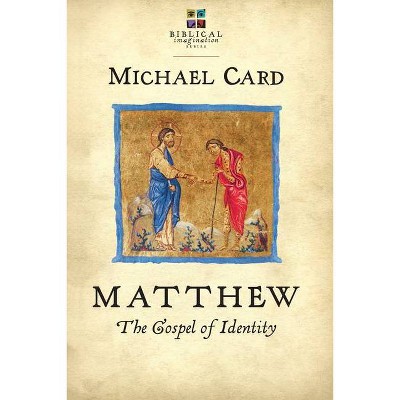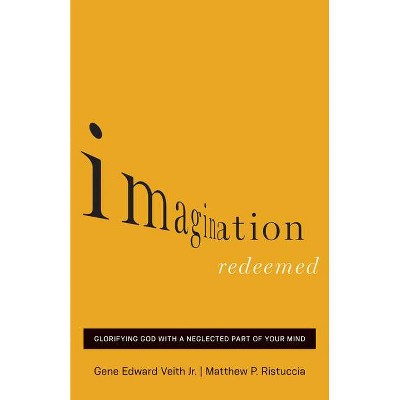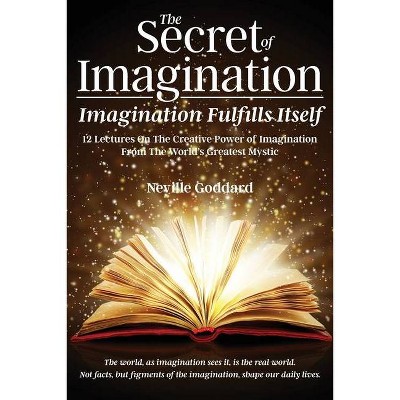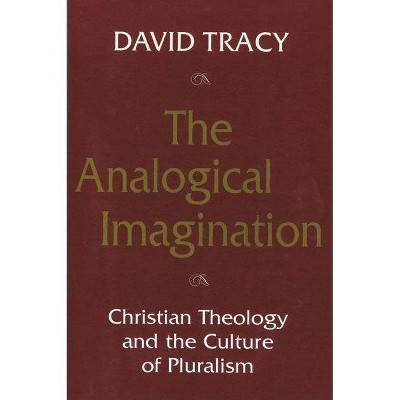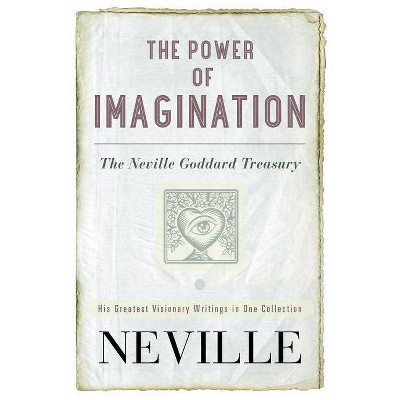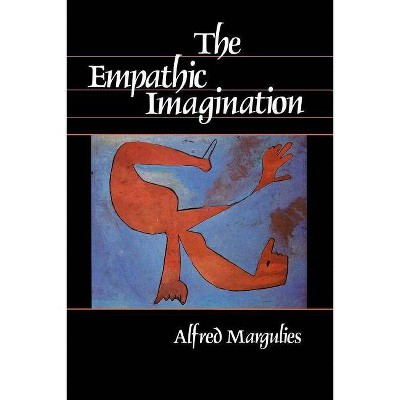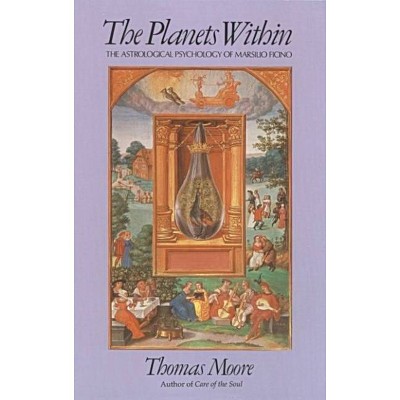The Mathematical Imagination - by Matthew Handelman (Paperback)
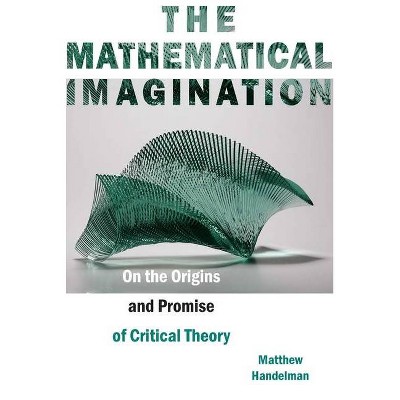
Similar Products
Products of same category from the store
AllProduct info
<p/><br></br><p><b> About the Book </b></p></br></br>During the Weimar Republic, mathematics provided Gershom Scholem, Franz Rosenzweig, and Siegfried Kracauer - friends and forerunners of the Frankfurt School - with tools to navigate the crises of modernity. This study explores the histories of mathematics at the origin of critical theory and shows the enduring relevance of mathematics for critical thought. <b></b><p/><br></br><p><b> Book Synopsis </b></p></br></br><p>This book offers an archeology of the undeveloped potential of mathematics for critical theory. As Max Horkheimer and Theodor W. Adorno first conceived of the critical project in the 1930s, critical theory steadfastly opposed the mathematization of thought. Mathematics flattened thought into a dangerous positivism that led reason to the barbarism of World War II. <i>The Mathematical Imagination</i> challenges this narrative, showing how for other German-Jewish thinkers, such as Gershom Scholem, Franz Rosenzweig, and Siegfried Kracauer, mathematics offered metaphors to negotiate the crises of modernity during the Weimar Republic. Influential theories of poetry, messianism, and cultural critique, Handelman shows, borrowed from the philosophy of mathematics, infinitesimal calculus, and geometry in order to refashion cultural and aesthetic discourse. <p/>Drawn to the austerity and muteness of mathematics, these friends and forerunners of the Frankfurt School found in mathematical approaches to negativity strategies to capture the marginalized experiences and perspectives of Jews in Germany. Their vocabulary, in which theory could be both mathematical and critical, is missing from the intellectual history of critical theory, whether in the work of second generation critical theorists such as Jürgen Habermas or in contemporary critiques of technology. <i>The Mathematical Imagination</i> shows how Scholem, Rosenzweig, and Kracauer's engagement with mathematics uncovers a more capacious vision of the critical project, one with tools that can help us intervene in our digital and increasingly mathematical present.</p><p/><br></br><p><b> From the Back Cover </b></p></br></br><p>"Against the familiar lament that the inappropriate application of mathematical reasoning abets social reification, de-vitalizing abstraction and instrumental rationality, Matthew Handelman rescues forgotten attempts by three leading German Jewish intellectuals, Rosenzweig, Scholem and Kracauer, to argue otherwise. In their search for a 'negative mathematics' that has critical potential, they foreshadowed ways in which the yawning gap between the humanities and STEM fields may be overcome in our digital age."--Martin Jay, University of California, Berkeley <p/>"Handelman shows how spiritual, quirky, and inventive engagements with math could suggest its affinities with projects of emancipation and ethics of dignity. His argument troubles oppositions between the humanities and STEM fields and promises to renew how humanists regard the incursion of positivism in the digitialization of method and episteme."--Anna Kornbluh, University of Illinois-Chicago <p/>This book offers an archeology of the undeveloped potential of mathematics for critical theory. As Max Horkheimer and Theodor W. Adorno first conceived of the critical project in the 1930s, critical theory steadfastly opposed the mathematization of thought. Mathematics flattened thought into a dangerous positivism that led reason to the barbarism of World War II. <i>The Mathematical Imagination</i> challenges this narrative, showing how for other German-Jewish thinkers, such as Gershom Scholem, Franz Rosenzweig, and Siegfried Kracauer, mathematics offered metaphors to negotiate the crises of modernity during the Weimar Republic. Influential theories of poetry, messianism, and cultural critique, Handelman shows, borrowed from the philosophy of mathematics, infinitesimal calculus, and geometry in order to refashion cultural and aesthetic discourse. <p/>Drawn to the austerity and muteness of mathematics, these friends and forerunners of the Frankfurt School found in mathematical approaches to negativity strategies to capture the marginalized experiences and perspectives of Jews in Germany. Their vocabulary, in which theory could be both mathematical and critical, is missing from the intellectual history of critical theory, whether in the work of second generation critical theorists such as Jürgen Habermas or in contemporary critiques of technology. <i>The Mathematical Imagination</i> shows how Scholem, Rosenzweig, and Kracauer's engagement with mathematics uncovers a more capacious vision of the critical project, one with tools that can help us intervene in our digital and increasingly mathematical present. <p/><b>Matthew Handelman</b> is Assistant Professor of German Studies at Michigan State University.</p><p/><br></br><p><b> Review Quotes </b></p></br></br><br>Any reader interested in the Frankfurt School and the history of Critical Theory who subscribes to the longstanding notion that this school of thought is fundamentally incompatible with quantitative thinking and the field of mathematics is in for a surprise with <i>The Mathematical Imagination</i>... The strengths of <i>The Mathematical Imagination</i> lie in the way in which mathematics in reclaimed for the project of Critical Theory; the unusual connections it articulates in the work of Scholem, Rosenzweig, and Kracauer; and the author''s fluency in both mathematical and aesthetic theory.-- "Monatshefte"<br><br><i>The Mathematical Imagination</i> presents mathematics and digital technologies as providing a key to unlock the critical possibilities hidden in language to give a voice to silenced communities... [Handelman's] methodology and ideology are deliberately provocative, and he intends to develop a post-academic approach to fix the weaknesses of traditional and official discourse.-- "Phenomenological Reviews"<br><br>Against the familiar lament that the inappropriate application of mathematical reasoning abets social reification, de-vitalizing abstraction and instrumental rationality, Matthew Handelman rescues forgotten attempts by three leading German Jewish intellectuals, Rosenzweig, Scholem and Kracauer, to argue otherwise. In their search for a 'negative mathematics' that has critical potential, they foreshadowed ways in which the yawning gap between the humanities and STEM fields may be overcome in our digital age.<b>---Martin Jay, University of California, Berkeley, <i></i></b><br><br>Handelman shows how spiritual, quirky, and inventive engagements with math could suggest its affinities with projects of emancipation and ethics of dignity. His argument troubles oppositions between the humanities and STEM fields and promises to renew how humanists regard the incursion of positivism in the digitialization of method and episteme.<b>---Anna Kornbluh, University of Illinois-Chicago, <i></i></b><br><p/><br></br><p><b> About the Author </b></p></br></br>Matthew Handelman is Assistant Professor of German at Michigan State University and core faculty in the Digital Humanities.
Price History
Price Archive shows prices from various stores, lets you see history and find the cheapest. There is no actual sale on the website. For all support, inquiry and suggestion messages communication@pricearchive.us
